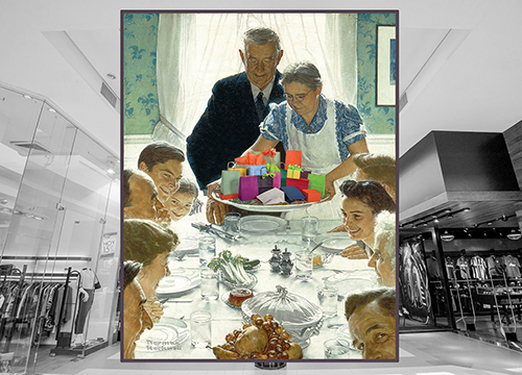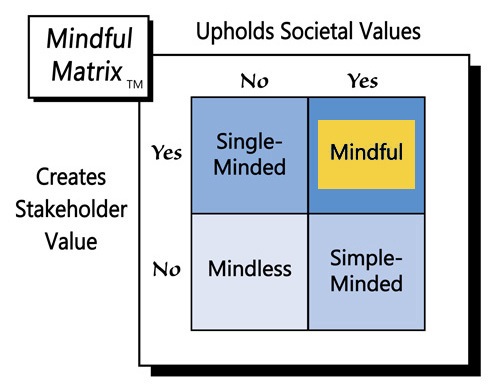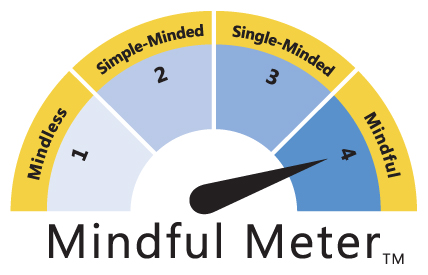The open-or-closed Thanksgiving Day decision continues to be a hot-button issue in retail. While some consumers appreciate companies that allow them to get an early start on their holiday shopping, others, bemoan store hour creep, which invades special times that should be shared at home with family and friends, not with strangers in department stores.
As might be expected, there are retailers supporting both sides of the consumer debate. Some of the stores that will be open for business this Thanksgiving are: JCPenney, Best Buy, Walmart, Walgreens, Bass Pro Shops, Sears, Dollar General, Macy’s, Toys R Us, Target, Kohl’s, Kmart, Dick’s Sporting Goods, and Fossil. The hours these store will keep varies. For instance, Bass Pro Shops will be open from 8 am to 6 pm, but Best Buy won’t open until 5 pm and will stay open until 1 am Friday morning.
Meanwhile, there’s a growing list of retailers that have decided to remain closed on Thanksgiving Day, which the New York Times suggests is the most recent trend. Among those taking Thanksgiving off this time are Nordstrom, Lowes, Staples, Sam’s Club, Game Stop, Costco, Home Depot, Marshalls, Barnes & Noble, Home Goods, Ikea, Patagonia, PetSmart, Publix, HH Gregg, Bed Bath and Beyond, and Cabela’s. Even the Mall of America will be closed on Thanksgiving Day.
So, who’s right about Thanksgiving Day shopping? With ‘A-List’ retailers supporting both sides of the debate, it appears that compelling arguments can be made for each case.
For instance, those in favor of being open on Thanksgiving can argue that retailers are in business to meet consumers’ needs. So, if people want to shop on the holiday, it’s fitting for companies to help satisfy that desire. Businesses also need to make money in order to remain viable, which an extra day of sales should help, especially at the height of the holiday shopping season.
On the other hand, perhaps the retailers that are open on Thanksgiving need to work smarter not longer. The companies closed for Thanksgiving are making a go of it, maybe by more effective promotion or more efficient operations. Furthermore, there are examples like Chick-fil-A, which is closed not just one day a year, but one day each week. Taking off every Sunday hasn’t seemed to hurt the restaurant; in fact, it probably has contributed to its success. When it comes to the bottom-line, maybe less is more.
Still, one shouldn’t evaluate Thanksgiving Day shopping only through an economic lens. There’s also the relational impact. Sure, shopping can be a social activity, but what’s the likelihood of shopping strengthening relationships versus a variety of other things people can be doing with family and friends on Thanksgiving Day? Often when families go together to stores they scatter, each to his/her area of interest. Ultimately products take priority over people.
The preceding argument also fails to consider another very important group of people—employees. I was talking recently about the holiday shopping season with one of my marketing classes, when a student spoke up to say that a friend of his resented being forced by his employer, a large and well-known retail store, to work on Thanksgiving Day. The young man wanted to spend that special time with his family, but he couldn’t, short of quitting his job.
One can only imagine how many times similar scenarios play out in households across America. Such situations tear at the fabric of families. Here’s where the economic and social rationales for staying closed reconvene. If the retailers that stay open on Thanksgiving are actually doing a disservice to consumers and jeopardizing their employees’ well-being, they’re also not doing any long-term favors for their bottom-lines.
Two years ago, I wrote a brief blog titled “A Time for Shopping” about stores being open on Thanksgiving Day, and I argued it was “Mindful” for retailers to remain closed. Last year, however, I shared the story of George’s Senate & Coney Island Restaurant, which is not only open on Thanksgiving, it also offers a free meal to anyone who is alone. So, which Mindful Matters blog was right? I’d like to think they both were, for the following reasons.
Some people simply have to work on Thanksgiving Day and other holidays, for example, police officers, nurses, and firefighters. Our lives are too dependent on their services to risk being without them for even one day. Some other occupations are not as critical, but are still very important, especially on and around holidays, for instance, hotel and restaurant workers. Not everyone can be at home and cook for themselves, so these individuals give up some of their holiday so many others can enjoy theirs. George’s Restaurant represents this second category.
One can argue, therefore, that the work of people in pubic safety and the hospitality industry is critical, or at least very important, on holidays. No one’s life or well-being is on the line, however, if Best Buy, Dick’s Sporting Goods, and Fossil fail to open their doors on Thanksgiving Day. However, their employees, like the young man mentioned above, realize that they are sacrificing their holiday for less-than-compelling reasons, which doesn’t bode well for these retailers in the long-run.
As more retail moves on-line, the effect of Thanksgiving Day shopping on employees should decrease, but it won’t go away. What’s more, there will continue to be the impact that holiday commercialization has on consumers wherever they are, particularly as digital connectedness grows and retailers reach them even more frequently through those virtual avenues. Taking a break from buying and selling once in a while, especially on a holiday like Thanksgiving is a good thing. Being grateful for what we already have and putting people ahead of products is always “Mindful Marketing.”
Learn more about the Mindful Matrix and Mindful Meter.
Check out Mindful Marketing Ads and Vote your Mind!




 RSS Feed
RSS Feed